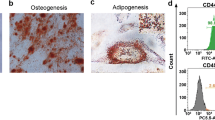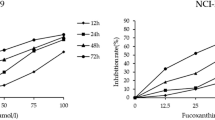Abstract
Objective
To investigate the effects of resveratrol (RSVL) on epithelial-mesenchymal transition (EMT) and biological behaviors of gastric cancer cells.
Methods
SGC-7901 cells were treated with RSVL, followed by TGF-β1 treatment for induction of EMT. Cell proliferation was tested by MTT assay, migration and invasion by Transwell and scratch assays, and Hippo-YAP signaling pathway activation by immunofluorescence. The RNA and protein expressions of E-cadherin, Vimentin, N-cadherin, and Snail were detected by qPCR and Western blot. A tumor model was constructed to examine the effect of RSVL on gastric tumor growth.
Results
RSVL inhibited the migration, invasion, and growth of gastric cancer cells in concentration- and time-dependent manners. RSVL inhibited TGF-β1-induced EMT of gastric cancer cells, which might relate to inactivation of the Hippo-YAP pathway. In the mouse tumor model, RSVL inhibited the EMT process by suppressing the Hippo-YAP pathway.
Conclusion
RSVL inhibited EMT of gastric cancer cells probably by weakening the Hippo-YAP signaling pathway.





Similar content being viewed by others
References
Ang TL, Fock KM. Clinical epidemiology of gastric cancer. Singapore Med J. 2014;55(12):621–8.
Machlowska J, Baj J, Sitarz M, et al. Gastric cancer: epidemiology, risk factors, classification, genomic characteristics and treatment strategies. Int J Mol Sci. 2020;21(11):4012.
Rau B, Brandl A, Thuss-Patience P, et al. The efficacy of treatment options for patients with gastric cancer and peritoneal metastasis. Gastric Cancer. 2019;22(6):1226–37.
Lui SA, Tan WB, Tai BC, et al. Predictors of survival outcome following radical gastrectomy for gastric cancer. ANZ J Surg. 2019;89(1–2):84–9.
Song Z, Wu Y, Yang J, et al. Progress in the treatment of advanced gastric cancer. Tumour Biol. 2017;39(7):1010428317714626.
Peng Z, Wang CX, Fang EH, et al. Role of epithelial-mesenchymal transition in gastric cancer initiation and progression. World J Gastroenterol. 2014;20(18):5403–10.
Kozak J, Forma A, Czeczelewski M, et al. Inhibition or reversal of the epithelial-mesenchymal transition in gastric cancer: pharmacological approaches. Int J Mol Sci. 2020;22(1):277.
Xu J, Liu D, Niu H, et al. Resveratrol reverses Doxorubicin resistance by inhibiting epithelial-mesenchymal transition (EMT) through modulating PTEN/Akt signaling pathway in gastric cancer. J Exp Clin Cancer Res. 2017;36(1):19.
Gao Q, Yuan Y, Gan HZ, et al. Resveratrol inhibits the hedgehog signaling pathway and epithelial-mesenchymal transition and suppresses gastric cancer invasion and metastasis. Oncol Lett. 2015;9(5):2381–7.
Kim S, Kim W, Kim DH, et al. Resveratrol suppresses gastric cancer cell proliferation and survival through inhibition of PIM-1 kinase activity. Arch Biochem Biophys. 2020;689:108413.
Xu QH, Xiao Y, Li XQ, et al. Resveratrol counteracts hypoxia-induced gastric cancer invasion and EMT through hedgehog pathway suppression. Anticancer Agents Med Chem. 2020;20(9):1105–14.
Meng Z, Moroishi T, Guan KL. Mechanisms of Hippo pathway regulation. Genes Dev. 2016;30(1):1–17.
Zheng M, Jacob J, Hung SH, et al. The Hippo pathway in cardiac regeneration and homeostasis: new perspectives for cell-free therapy in the injured heart. Biomolecules. 2020;10(7):1024.
Gao Y, Li J, Xi H, et al. Stearoyl-CoA-desaturase-1 regulates gastric cancer stem-like properties and promotes tumour metastasis via Hippo/YAP pathway. Br J Cancer. 2020;122(12):1837–47.
Zhou H, Li G, Huang S, et al. SOX9 promotes epithelial-mesenchymal transition via the Hippo-YAP signaling pathway in gastric carcinoma cells. Oncol Lett. 2019;18(1):599–608.
Xu G, Chen J, Wang G, et al. Resveratrol inhibits the tumorigenesis of follicular thyroid cancer via ST6GAL2-regulated activation of the Hippo signaling pathway. Mol Ther Oncolytics. 2020;16:124–33.
Zong W, Yu C, Wang P, et al. Overexpression of SASH1 inhibits TGF-beta1-induced EMT in gastric cancer cells. Oncol Res. 2016;24(1):17–23.
Burja B, Kuret T, Janko T, et al. Olive leaf extract attenuates inflammatory activation and DNA damage in human arterial endothelial cells. Front Cardiovasc Med. 2019;6:56.
Odero-Marah V, Hawsawi O, Henderson V, et al. Epithelial-mesenchymal transition (EMT) and prostate cancer. Adv Exp Med Biol. 2018;1095:101–10.
Li N, Feng Y, Hu Y, et al. Helicobacter pylori CagA promotes epithelial mesenchymal transition in gastric carcinogenesis via triggering oncogenic YAP pathway. J Exp Clin Cancer Res. 2018;37(1):280.
Hong G, Yan Y, Zhong Y, et al. Combined ischemic preconditioning and resveratrol improved bloodbrain barrier breakdown via Hippo/YAP/TAZ signaling pathway. CNS Neurol Disord Drug Targets. 2019;18(9):713–22.
Ko JH, Sethi G, Um JY, et al. The role of resveratrol in cancer therapy. Int J Mol Sci. 2017;18(12):2589.
Zulueta A, Caretti A, Signorelli P, et al. Resveratrol: a potential challenger against gastric cancer. World J Gastroenterol. 2015;21(37):10636–43.
Kim CW, Hwang KA, Choi KC. Anti-metastatic potential of resveratrol and its metabolites by the inhibition of epithelial-mesenchymal transition, migration, and invasion of malignant cancer cells. Phytomedicine. 2016;23(14):1787–96.
He Z, Dong W, Li Q, et al. Sauchinone prevents TGF-beta-induced EMT and metastasis in gastric cancer cells. Biomed Pharmacother. 2018;101:355–61.
Liu J, Chen Y, Cao Z, et al. Babao Dan inhibits the migration and invasion of gastric cancer cells by suppressing epithelial-mesenchymal transition through the TGF-beta/Smad pathway. J Int Med Res. 2020;48(6):300060520925598.
Su B, Su J, Zeng Y, et al. Diallyl disulfide inhibits TGFbeta1induced upregulation of Rac1 and betacatenin in epithelialmesenchymal transition and tumor growth of gastric cancer. Oncol Rep. 2018;39(6):2797–806.
Yang Z, Xie Q, Chen Z, et al. Resveratrol suppresses the invasion and migration of human gastric cancer cells via inhibition of MALAT1-mediated epithelial-to-mesenchymal transition. Exp Ther Med. 2019;17(3):1569–78.
Han G, Xia J, Gao J, et al. Anti-tumor effects and cellular mechanisms of resveratrol. Drug Discov Ther. 2015;9(1):1–12.
Xu J, Li N, Deng W, et al. Long noncoding RNA FER1L4 suppresses proliferation, invasion, migration and lymphatic metastasis of gastric cancer cells through inhibiting the Hippo-YAP signaling pathway. Am J Transl Res. 2020;12(9):5481–95.
Yan H, Qiu C, Sun W, et al. Yap regulates gastric cancer survival and migration via SIRT1/Mfn2/mitophagy. Oncol Rep. 2018;39(4):1671–81.
Kim YN, Choe SR, Cho KH, et al. Resveratrol suppresses breast cancer cell invasion by inactivating a RhoA/YAP signaling axis. Exp Mol Med. 2017;49(2): e296.
Acknowledgements
We acknowledge and appreciate Lianwu Zhao for his valuable comments on the article, Jiangxi Cancer Hospital for providing the experimental site, and Jun Zou, Meijian Wang, and Yongfeng Su for their support.
Author information
Authors and Affiliations
Corresponding author
Ethics declarations
Conflict of interest
Authors declare that there are no conflict of interest.
Ethics approval
Ethical approval All procedures conformed to the regulations of the Animal Ethics Committee of Gaoxin hospital, the First Affiliated Hospital of Nanchang University.
Informed consent
I represent all my co-authors who have approved the publication of the article.
Competing interests
The authors report no relationships that could be construed as a conflict of interest.
Additional information
Publisher's Note
Springer Nature remains neutral with regard to jurisdictional claims in published maps and institutional affiliations.
Rights and permissions
About this article
Cite this article
Deng, L., Zou, J., Su, Y. et al. Resveratrol inhibits TGF-β1-induced EMT in gastric cancer cells through Hippo-YAP signaling pathway. Clin Transl Oncol 24, 2210–2221 (2022). https://doi.org/10.1007/s12094-022-02882-z
Received:
Accepted:
Published:
Issue Date:
DOI: https://doi.org/10.1007/s12094-022-02882-z




